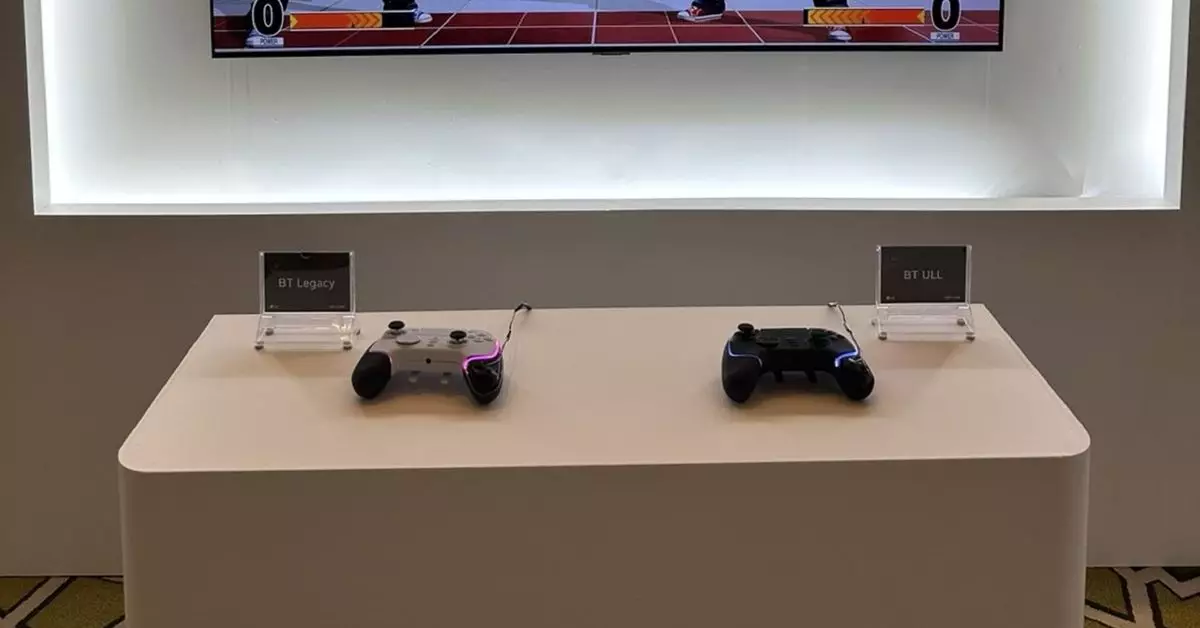The realm of cloud gaming continues to expand, challenging traditional gaming paradigms in ways we have yet to fully grasp. As gaming technology evolves, the issue of input lag has emerged as a significant hurdle for gamers who demand quick, precise interactions. LG’s recent partnership with Razer and MediaTek introduces a promising advance in this arena: a groundbreaking Bluetooth gaming controller that aspires to operate with ultra-low latency. This innovative controller could finally align wireless functionality with the responsiveness of its wired counterparts, offering much-needed improvements in an area that has long plagued mobile and cloud gaming.
At LG’s recent webOS Summit, their new Bluetooth controller was showcased, underscoring the potential of Ultra-Low Latency (ULL) technology. LG claims this controller outperformed a standard model significantly, evidencing advancements in performance across various game genres such as first-person shooters, racing, and fighting games. This demonstration not only highlighted the controller’s low input lag—allegedly as little as 1 millisecond—but also emphasized the importance of precision in competitive environments.
Historically, input latencies of less than 10-20 milliseconds have been the norm for acceptable performance in gaming. Players often prefer wired connections due to their predictable and low latency, which is crucial in competitive settings where every millisecond counts. The leap toward a wireless option with drastically reduced lag could reshape how gamers interact with cloud-based platforms.
Interestingly, this quest for reducing input lag is not new; it echoes the efforts made by Google with its previous Stadia service. Google attempted to tackle latency by linking controllers directly to its data centers through Wi-Fi, thus bypassing Bluetooth-related issues altogether. Unfortunately, the ambitious Stadia project was ultimately shut down. However, Google’s foresight in recognizing the importance of latency support in gaming remains relevant. As the gaming market awaits further information about LG and Razer’s new offering, it becomes crucial to understand the implications of these technological advancements.
Integrating ULL capabilities into LG’s upcoming range of 120Hz OLED and mini-LED televisions will mark a significant step forward when scheduled for release in 2025. This compatibility aims to ensure that third-party controllers can efficiently interact with LG’s webOS system, creating a fluid ecosystem for users. Razer’s controller is initially flagged for this certification, positioning it as a frontrunner in the ULL-enabled gaming landscape.
However, despite the excitement brewing around this innovative controller, critical details such as pricing or an official name remain undisclosed. The gaming community will need to exercise patience as more information emerges, likely during major industry events like CES, slated for January 7-10. The forthcoming revelations may provide crucial insights into the potential price points and availability of this eagerly anticipated controller.
The collaboration between LG, Razer, and MediaTek hints at an exhilarating future for gaming enthusiasts, particularly those engaged in cloud gaming environments. If successful, their new controller could redefine user experiences, blending the convenience of wireless controllers with the low-latency performance typically reserved for wired options. As we anticipate further developments, gamers are left to wonder: will this evolution signal a new era in how we engage with games digitally? Only time will tell.


Leave a Reply